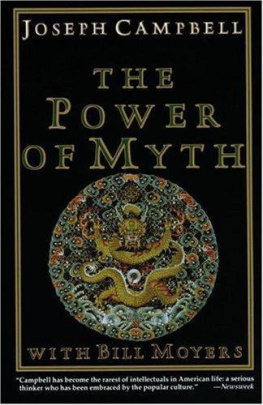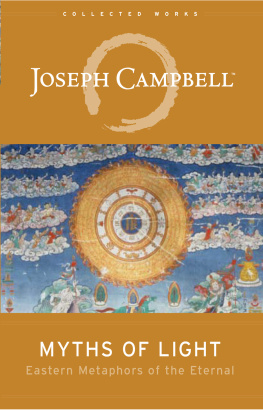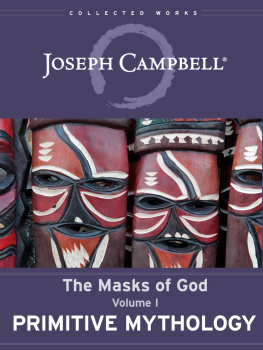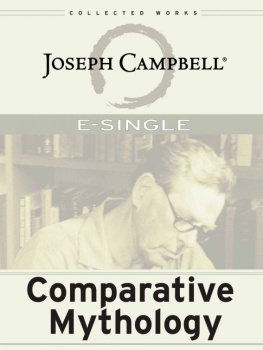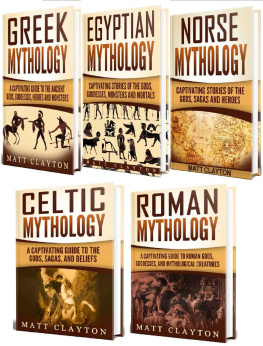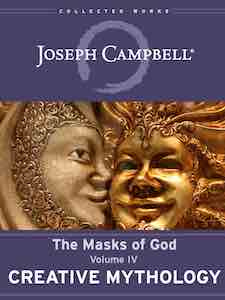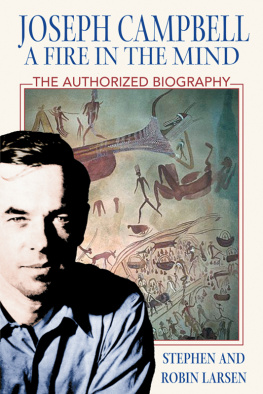Joseph Campbell - The Masks of God, Volume 4: Creative Mythology
Here you can read online Joseph Campbell - The Masks of God, Volume 4: Creative Mythology full text of the book (entire story) in english for free. Download pdf and epub, get meaning, cover and reviews about this ebook. year: 2016, publisher: PublishDrive, genre: Religion. Description of the work, (preface) as well as reviews are available. Best literature library LitArk.com created for fans of good reading and offers a wide selection of genres:
Romance novel
Science fiction
Adventure
Detective
Science
History
Home and family
Prose
Art
Politics
Computer
Non-fiction
Religion
Business
Children
Humor
Choose a favorite category and find really read worthwhile books. Enjoy immersion in the world of imagination, feel the emotions of the characters or learn something new for yourself, make an fascinating discovery.
- Book:The Masks of God, Volume 4: Creative Mythology
- Author:
- Publisher:PublishDrive
- Genre:
- Year:2016
- Rating:5 / 5
- Favourites:Add to favourites
- Your mark:
- 100
- 1
- 2
- 3
- 4
- 5
The Masks of God, Volume 4: Creative Mythology: summary, description and annotation
We offer to read an annotation, description, summary or preface (depends on what the author of the book "The Masks of God, Volume 4: Creative Mythology" wrote himself). If you haven't found the necessary information about the book — write in the comments, we will try to find it.
The Masks of God, Volume 4: Creative Mythology — read online for free the complete book (whole text) full work
Below is the text of the book, divided by pages. System saving the place of the last page read, allows you to conveniently read the book "The Masks of God, Volume 4: Creative Mythology" online for free, without having to search again every time where you left off. Put a bookmark, and you can go to the page where you finished reading at any time.
Font size:
Interval:
Bookmark:
The Love-Death
I find it impossible to understand how anyone who had really read both the literature of Gnosticism and the poetry of Gottfried could suggest as does a recent student of the psychology of amor that not only Gottfried but also the other Tristan poets, and the troubadours as well, were Manichaeans. The period of their flowering, it is true, was that of the Albigensian heresy. It is also true that the cult of amor, with its guiding light, the Fair Lady of Thought, was in principle both adulterous and not directed to reproduction. Moreover, the consecration of this love was not an ecclesiastical affair of bell, book, and clergy, but a matter, purely, of the character and sentiments of the couple involved. And finally, the mad disciplines to which a lover might, in the name of love, subject himself, sometimes approached the lunacies of a penitential grove.
There is an account of one who bought a lepers gown, bowl, and clapper from some afflicted wretch and, having mutilated a finger, sat amidst a company of the sick and maimed before his ladys door, to await her alms. The poet Peire Vidal (c. 1150c. 1210?), in honor of a lady named La Loba, The She-Wolf, had himself sewn into the skin of a wolf, and then, provoking a shepherds dogs, ran before them until pulled down, nearly dead after which the countess and her husband, laughing together, had him doctored until well. One is reminded of the childlike contemporary of these poets, Saint Francis (11821226), who, conceiving of himself as the troubadour of Dame Poverty, begged alms with the lepers, wandered in hair shirt through the winter woods, wrote poems to the elements, and preached sermons to the birds.
However, the first point to be remarked in connection with the Albigensian charge is that, whereas according to the Gnostic-Manichaean view nature is corrupt and the lure of the senses to be repudiated, in the poetry of the troubadours, in the Tristan story, and in Gottfrieds work above all, nature in its noblest moment the realization of love is an end and glory in itself; and the senses, ennobled and refined by courtesy and art, temperance, loyalty and courage, are the guides to this realization. Like a flower potential in its seed, the blossom of the realization of love is potential in every heart (or, at least, every noble heart) and requires only proper cultivation to be fostered to maturity. Hence, if the courtly cult of amor is to be catalogued according to its heresy, it should be indexed rather as Pelagian than as Gnostic or Manichaean, for, as noticed in Pelagius and his followers absolutely rejected the doctrine of our inheritance of the sin of Adam and Eve, and taught that we have finally no need of supernatural grace, since our nature itself is full of grace; no need of a miraculous redemption, but only of awakening and maturation; and that, though the Christian is advantaged by the model and teaching of Christ, every man is finally (and must be) the author and means of his own fulfillment. In the lyrics of the troubadours we hear little or nothing of the fall and corruption either of the senses or of the world.
Moreover, in contrast to the spirit of the indiscriminate Love Feast, whether of the orgiastic Phibionite variety or the charitable church-supper type, the address of amor is personal. It follows the lead and allure, as we have said, of the senses, and in particular of the noblest sense, that of sight; whereas the whole point of the Love Feast, and the very virtue of communal love, is that its aim is indiscriminate. Love thy neighbor as thyself. Selectivity, the prime function of the eye and heart, is in the agap methodically abjured. The lights go out, so to say, and whatever is at hand, one loves either in the angelic way of charity or in the orgiastic, demonic way of a Dionysian orgy; but in either case, religiously: in renunciation of ego, ego judgment, and ego choice.
It is amazing, but our theologians still are writing of agap and eros and their radical opposition, as though these two were the final terms of the principle of love: the former, charity, godly and spiritual, being of men toward each other in a community, and the latter, lust, natural and fleshly, being the urge, desire and delight of sex. Nobody in a pulpit seems ever to have heard of amor as a third, selective, discriminating principle in contrast to the other two. For amor is neither of the right-hand path (the sublimating spirit, the mind and the community of m an), nor of the indiscriminate left (the spontaneity of nature, the mutual incitement of the phallus and the womb), but is the path directly before one, of the eyes and their message to the heart.
There is a poem to this point by a great troubadour (perhaps the greatest of all), Guiraut de Borneilh (c. 11381200 ?):
So, through the eyes love attains the heart:
For the eyes are the scouts of the heart,
And the eyes go reconnoitering
For what it would please the heart to possess.
And when they are in full accord
And firm, all three, in the one resolve,
At that time, perfect love is born
From what the eyes have made welcome to the heart.
Not otherwise can love either be born or have commencement
Than by this birth and commencement moved by inclination.
By the grace and by command
Of these three, and from their pleasure,
Love is born, who with fair hope
Goes comforting her friends.
For as all true lovers
Know, love is perfect kindness,
Which is born there is no doubt from the heart and eyes.
The eyes make it blossom; the heart matures it:
Love, which is the fruit of their very seed.
We have here attained, I would say, new ground: such ground as in the whole course of our long survey of the worlds primitive, Oriental, and Occidental traditions has not been encountered before. It is the ground, unique and new, on which stands the modern self-reliant individual in so far, at least, as he has yet been able to mature, to show himself, and to hold his gained ground against the panic weight in opposition of the old and new mass and tribal thinkers. In the nineteen lines of this troubadour poem, in fact, there already comes to view a prospect of that world of Renaissance man which in art was presently to be typified in the rules, the objectively discovered principles, of Renaissance (linear) perspective: the organization of a selected or imagined field from an individual point of view, along lines going out toward a vanishing point from the locus of a living pair of eyes according to the impulse, moreover, of the individuals private heart. The world is now showing itself in its own sweet light and form, at last, to men and women of sense, who are daring to look, to see, and to respond. The system of problems of the controlling religious tradition is in principle disregarded, and the individual standpoint becomes decisive. And so, although it is true that in the century of the troubadours there was rampant throughout Europe a general Manichaean heresy, and that many of the ladies celebrated in the poems are known to have been heretics just as others were practicing Christians, and the poets themselves communicants of one tradition or the other in their character as artists and in their poetry and song the troubadours stood apart from both traditions. The whole meaning of their stanzas lay in the celebration of a love the aim of which was neither marriage nor the dissolution of the world. Nor was it even carnal intercourse; nor, again as among the Sufis the enjoyment, by analogy, of the wine of a divine love and the quenching of the soul in God. The aim, rather, was life directly in the experience of love as a refining, sublimating, mystagogic force, of itself opening the pierced heart to the sad, sweet, bittersweet, poignant melody of being, through loves own anguish and loves joy.
Font size:
Interval:
Bookmark:
Similar books «The Masks of God, Volume 4: Creative Mythology»
Look at similar books to The Masks of God, Volume 4: Creative Mythology. We have selected literature similar in name and meaning in the hope of providing readers with more options to find new, interesting, not yet read works.
Discussion, reviews of the book The Masks of God, Volume 4: Creative Mythology and just readers' own opinions. Leave your comments, write what you think about the work, its meaning or the main characters. Specify what exactly you liked and what you didn't like, and why you think so.




